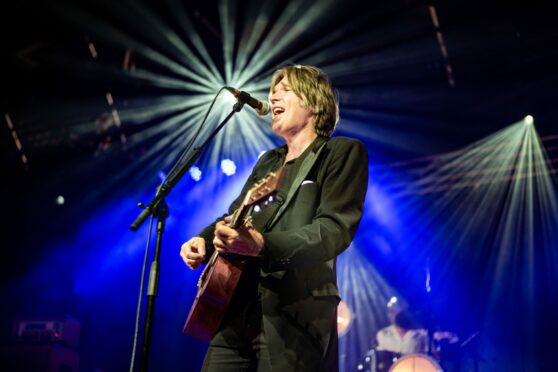
Leading music managers and promoters have spoken of the challenges of bringing international acts to Scotland, and sending homegrown bands overseas, amid a rising number of call-offs blamed on Covid.
Thousands of fans were left disappointed when a raft of festive gigs by bands, including Deacon Blue, The Charlatans and Del Amitri were postponed around the country at short notice last month because of the rapid spread of the Omicron variant.
International acts such as Blondie, Alanis Morissette and Celine Dion have already rescheduled cancelled Scots shows for later this year but promoters warn there are no guarantees about when things might return to normal.
Mark Mackie, director of Edinburgh-based Regular Music, has been bringing world stars to Scotland for more than three decades.
He said the pandemic had led touring acts from the US and Canada to stay at home for the past two years – and UK bands going back on the road face a mountain of paperwork and regular Covid testing.
“Things were looking up in October and November when a number of tours restarted,” he said.
“But then Omicron arrived and threw everything back into chaos. For a UK tour to work financially, acts usually have to play a lot of countries in Europe as well because all of the profit for the performers is in the last 25% of their ticket sales, and touring is expensive.
“That means if one country goes into lockdown and you lose half a dozen gigs of the tour, then you are only breaking even. If a second country introduces restrictions and more shows are cancelled, then you starting to lose money pretty quickly and the whole thing is not viable.”
Mackie said bands on the road now have to “bubble up” and travel separately from their crews – and stay away from fans.
“If the lead singer or drummer gets sick then it is almost impossible to replace them so the performers have to be very careful,” he said.
“The beaurocracy is also a nightmare as different countries require different proof of vaccination and Covid testing results for travelling artists and their crews.
“The Americans have started announcing shows in Scotland from early summer but Omicron has taught us that there are no certainties about anything at the moment.”
Brendan Moon, director of Glasgow-based promoters Morsecode Management, also represents Scots rockers Gun and has previously managed the careers of Paolo Nutini and Susan Boyle.
He has already had to postpone dozens of UK dates by popular acts including UB40, The Alarm and US star Jimmy Webb, and was forced to rearrange a European tour set up for Gun. “There is still a huge appetite for live music out there,” he said. “We saw that at the end of last summer when restrictions were lifted.
“But when Omicron arrived we started seeing about 20% of audiences, sometimes more, not showing up despite having bought tickets because people were understandably more nervous about being in a crowd.
“The safety of the fans comes first for us so we had no option but to cancel and postpone shows over Christmas and the New Year.”
Moon added that Brexit had made touring in Europe more problematic and getting event cancellation insurance was near impossible, which added to the financial risks.
He said: “Despite the challenges, we remain optimistic that when live music eventually comes back to our towns and cities then so will the fans.”

Enjoy the convenience of having The Sunday Post delivered as a digital ePaper straight to your smartphone, tablet or computer.
Subscribe for only £5.49 a month and enjoy all the benefits of the printed paper as a digital replica.
Subscribe